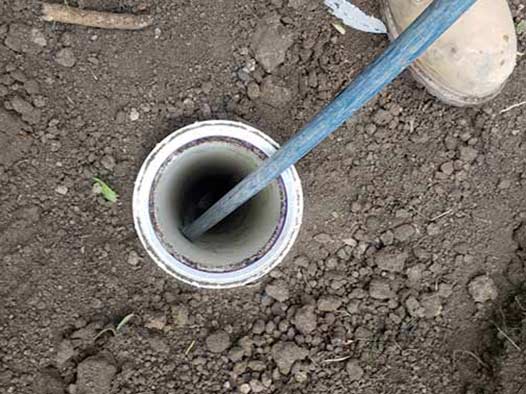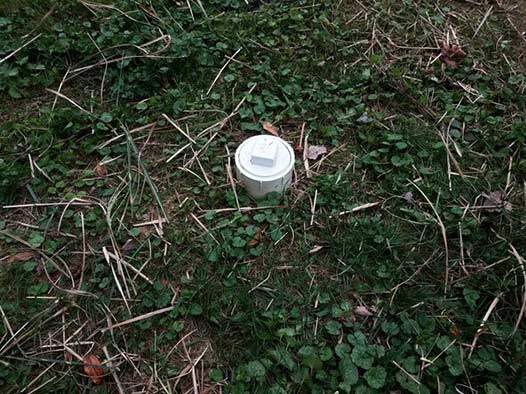In any residential or commercial property, an efficient drainage system is crucial for maintaining cleanliness and preventing sewage backups. Sewer cleanouts play a vital role in this system by providing convenient access points for inspection, cleaning, and unclogging of the sewer line. In this article, we will explore what sewer cleanouts are and how they work, shedding light on their significance in maintaining the proper functioning of sewer systems.
Understanding Sewer Cleanouts
Sewer cleanouts, also known as cleanout plugs or access points, are typically vertical pipes with a removable cap or cover located at various strategic points along a sewer line. These access points provide entry into the sewer line for plumbers and technicians to inspect and clear any blockages or accumulated debris that can hinder the flow of wastewater.
Most commonly, sewer cleanouts are found outside a property in areas such as the front or back yard, close to the house foundation, or along the property line. However, in some cases, they may also be located within the property, such as in the basement or crawl space.
The Components of Sewer Cleanouts
A typical sewer cleanout consists of the following components:
- Cleanout Pipe: The cleanout pipe is a vertical pipe that connects to the main sewer line. It is usually made of PVC or cast iron and ranges in diameter from 3 to 6 inches.
- Cleanout Cap: The cleanout cap is a removable cover or plug that seals the cleanout pipe. It can be unscrewed or lifted off to access the sewer line.
- Cleanout Tee: The cleanout tee is a fitting connected to the cleanout pipe. It features a branch that allows the insertion of a rodding machine or hydro jetting nozzle for cleaning and clearing blockages.
How Sewer Cleanouts Work
When a blockage occurs in a sewer line, it can lead to unpleasant consequences such as sewage backups, foul odors, or even potential health hazards. Sewer cleanouts act as entry points for sewer line maintenance and repair, allowing plumbers to camera inspect inside the pipe, diagnose the issue, and take necessary action to restore proper flow.
Here is a step-by-step explanation of how sewer cleanouts work:
- Locating the Cleanout: In case of a blockage or suspected issue in the sewer line, the first step is to locate the cleanout. Cleanouts are generally positioned in easily accessible areas, either above ground or within the property. Once located, the cleanout cap needs to be removed.
- Accessing the Sewer Line: After removing the cleanout cap, a plumber or technician gains access to the sewer line. Using specialized equipment such as drain cameras, they can inspect the inside of the pipe and identify any blockages, cracks, or other problems.
- Clearing the Blockage: If a blockage is detected, the next step involves clearing it. Plumbing professionals use various methods, including sewer rodding services, hydro jetting, or chemical agents, to break apart or dislodge the obstruction, allowing the wastewater to flow freely again.
- Repairing or Replacing the Pipe: In some cases, if the sewer line is damaged or has extensive issues, repairs or pipe replacement may be necessary. The cleanout provides a convenient access point for such repairs, minimizing the need for major excavation or demolition.
- Restoring the Cleanout: Once the maintenance or sewer line repair work is complete, the cleanout cap is securely screwed or placed back onto the cleanout pipe, ensuring its integrity and preventing any unwanted debris from entering the sewer system.

After removing the cleanout cap, a plumber or technician gains access to the sewer line.
Benefits of Sewer Cleanouts
The presence of cleanouts offers numerous advantages for both property owners and plumbing professionals:
- Efficient Maintenance: Sewer cleanouts simplify the process of sewer line maintenance and repair. With easy access to the sewer line, plumbers can swiftly diagnose and resolve issues, minimizing disruption to daily activities.
- Preventive Measure: Regular inspection and cleaning of the sewer line through cleanouts can help identify potential problems before they turn into major issues. It allows for proactive maintenance and prevents costly repairs down the line.
- Improved Performance: By removing obstructions, cleanouts ensure the proper and uninterrupted flow of wastewater, reducing the risk of sewage backups.
- Cost Savings: Timely maintenance and repair work carried out through sewer cleanouts can help property owners avoid expensive repairs, water damage, or property value decline. It is an investment that pays off in the long run.
Maintaining Sewer Cleanouts
Maintaining cleanouts is crucial for their effectiveness and longevity. Here are some essential tips to keep in mind:
- Regular Inspections: Schedule periodic sewer camera inspections by a professional plumber to ensure the cleanouts are free from debris and in proper working condition.
- Prevent Obstruction: Avoid dumping large objects, grease, or sanitary products down the drain to prevent clogging and potential damage to the sewer line.
- Protect from Damage: Keep the cleanout caps securely in place to prevent physical damage or intrusion of tree roots and soil.
- Winter Precautions: In colder climates, protect the cleanouts from freezing by insulating or using heat tape, as frozen pipes can lead to blockages and pipe bursts.
- Professional Maintenance: If you encounter any issues or suspect a problem with your sewer line, seek professional assistance to inspect and address the situation promptly.
To Sum It Up
In conclusion, sewer cleanouts are essential components of a properly functioning drainage system. By providing convenient access for inspection and maintenance, they ensure the efficient flow of wastewater while preventing blockages and backups. Regular maintenance of sewer cleanouts is key to avoiding major issues and costly repairs, offering peace of mind to property owners. If you have sewer cleanouts on your property, make sure to keep them well-maintained and seek professional assistance whenever necessary. Remember, a well-functioning sewer system contributes to a cleaner and healthier living environment.
